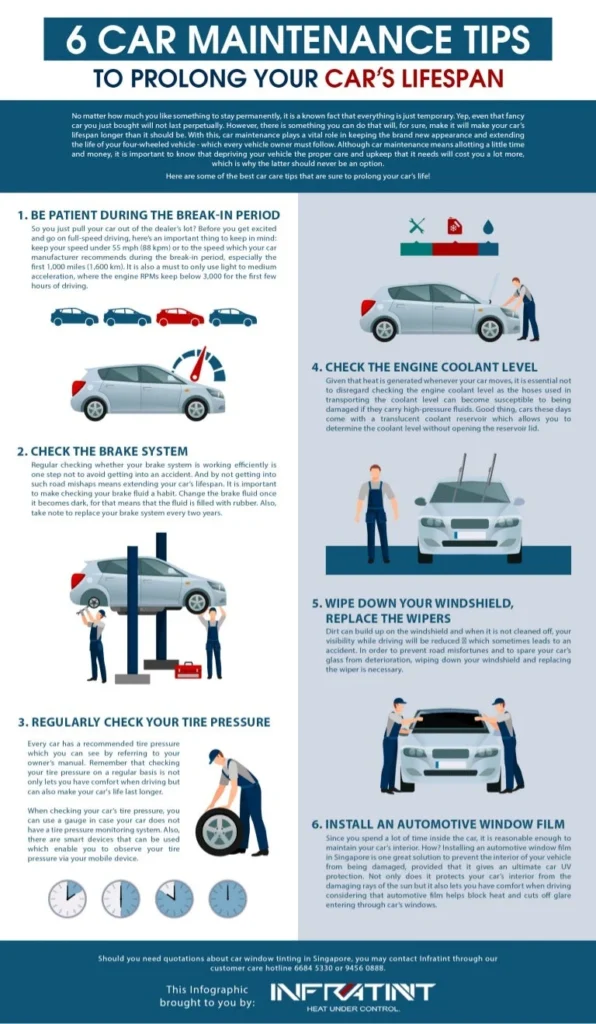Regular car maintenance is crucial for extending the lifespan of your vehicle. By following car maintenance tips, you can ensure that your vehicle runs smoothly and efficiently for years to come. Proper maintenance can also help prevent costly repairs and breakdowns, saving you time and money in the long run. From regular oil changes to checking tire pressure and fluid levels, there are several simple steps you can take to keep your car in top condition. By staying on top of these maintenance tasks, you can maximize the longevity of your vehicle and ensure a safe and reliable driving experience.
To keep your vehicle running smoothly and extend its lifespan, it is important to follow a regular maintenance schedule. This includes checking and replacing the oil, filters, and fluids as needed. In addition, regular inspections of the tires, brakes, and battery can help identify any potential issues before they become major problems. By addressing these maintenance tasks proactively, you can avoid costly repairs and keep your vehicle in optimal condition for years to come. Regular maintenance also helps maintain the value of your car and ensures a safe and reliable driving experience.
1. Regular Oil Changes
One of the most important car maintenance tips to extend your vehicle’s lifespan is to regularly change the oil. Engine oil lubricates the moving parts of the engine and helps to reduce friction and wear. Over time, the oil can become contaminated with dirt and debris, which can cause damage to the engine if not changed regularly. By following the manufacturer’s recommended oil change schedule, you can help to ensure that your engine stays properly lubricated and running smoothly for years to come.
It’s important to use the correct type of oil for your vehicle, as specified in the owner’s manual. You should also check the oil level regularly and top it up as needed. Neglecting oil changes can lead to costly repairs and a shorter lifespan for your car, so be sure to stay on top of this important maintenance task.
2. Tire Maintenance
Proper tire maintenance is essential for both safety and extending the lifespan of your vehicle. This includes regular tire rotations, wheel alignments, and maintaining the correct tire pressure. Rotating your tires helps to ensure even wear and prolongs the life of the tires, while wheel alignments prevent uneven wear and ensure that your vehicle drives straight and handles properly. Additionally, maintaining the correct tire pressure can improve fuel efficiency and prevent premature tire wear. By keeping an eye on your tires and performing regular maintenance, you can help to extend the lifespan of your vehicle and ensure a safe driving experience.
It’s also important to regularly inspect your tires for signs of damage or wear, such as cracks in the sidewall or uneven tread wear. If you notice any issues, it’s important to address them promptly to prevent further damage to your tires and vehicle.
3. Regular Fluid Checks
Checking and maintaining the various fluids in your vehicle, such as coolant, transmission fluid, and brake fluid, is crucial for extending its lifespan. These fluids play a vital role in the proper functioning of your vehicle’s systems and components. For example, coolant helps to regulate the engine temperature, transmission fluid keeps the transmission running smoothly, and brake fluid is essential for safe and effective braking. By regularly checking and topping up these fluids as needed, you can help to prevent costly damage and ensure that your vehicle continues to operate properly.
In addition to topping up fluids, it’s important to have them flushed and replaced at the intervals recommended in your vehicle’s maintenance schedule. This helps to remove any contaminants and ensure that the fluids are performing their intended functions effectively.
4. Regular Inspections and Maintenance
Regular inspections and maintenance by a qualified mechanic are essential for identifying and addressing potential issues before they become major problems. This includes routine maintenance tasks such as replacing the air filter, spark plugs, and timing belt, as well as inspecting the brakes, suspension, and other critical components. By staying on top of these maintenance tasks, you can help to prevent breakdowns and costly repairs, and keep your vehicle running smoothly for years to come.
It’s also important to follow the manufacturer’s recommended maintenance schedule for your vehicle, as outlined in the owner’s manual. This will help to ensure that your vehicle receives the necessary care and attention to keep it in top condition.
5. Keep it Clean
Regular cleaning and detailing of your vehicle not only help it look great, but also play a role in extending its lifespan. Dirt, grime, and road salt can cause corrosion and damage to the paint and undercarriage of your vehicle if left unchecked. By regularly washing and waxing your car, as well as cleaning the interior, you can help to protect it from the elements and preserve its appearance and value.
In addition to regular cleaning, it’s important to address any chips or scratches in the paint promptly to prevent rust from forming. Keeping your vehicle clean and well-maintained can go a long way in extending its lifespan and preserving its resale value.
6. Drive Smoothly
The way you drive can also have an impact on the lifespan of your vehicle. Aggressive driving, such as rapid acceleration and hard braking, can cause increased wear and tear on the engine, brakes, and other components. By driving smoothly and avoiding rapid changes in speed, you can help to reduce stress on your vehicle and extend its lifespan.
In addition, avoiding excessive idling and unnecessary short trips can help to prolong the life of your engine and reduce fuel consumption. By driving more efficiently and being mindful of your driving habits, you can help to extend the lifespan of your vehicle and improve its overall performance.
7. Protect it from the Elements
Exposure to the elements, such as extreme temperatures, sunlight, and inclement weather, can take a toll on your vehicle over time. Whenever possible, try to park your car in a garage or shaded area to protect it from the sun and reduce the risk of paint and interior damage. Additionally, using a car cover during periods of prolonged storage can help to protect your vehicle from dust, dirt, and other environmental hazards.
Regularly applying a protective wax or sealant to the exterior of your vehicle can also help to shield it from the elements and preserve the paint finish. By taking steps to protect your vehicle from the effects of the environment, you can help to extend its lifespan and keep it looking great for years to come.
8. Address Issues Promptly
If you notice any unusual sounds, vibrations, or performance issues with your vehicle, it’s important to address them promptly to prevent further damage and extend its lifespan. Ignoring potential problems can lead to more extensive damage and costly repairs down the road. By addressing issues as soon as they arise, you can help to keep your vehicle running smoothly and prevent minor issues from turning into major headaches.
It’s also important to stay on top of any recalls or service bulletins issued by the manufacturer, as these may indicate potential issues that need to be addressed. By staying proactive and addressing issues promptly, you can help to extend the lifespan of your vehicle and avoid unnecessary expenses.
| Tip | Description |
|---|---|
| Regular Oil Changes | Helps to keep the engine running smoothly and extends its lifespan. |
| Tire Rotation | Ensures even tire wear and improves fuel efficiency. |
| Brake Inspections | Regular checks can prevent costly repairs and ensure safety. |
| Fluid Checks | Regularly checking and topping up fluids such as coolant and transmission fluid can prevent major issues. |
| Regular Cleaning | Helps to prevent rust and corrosion, keeping the vehicle in good condition. |



